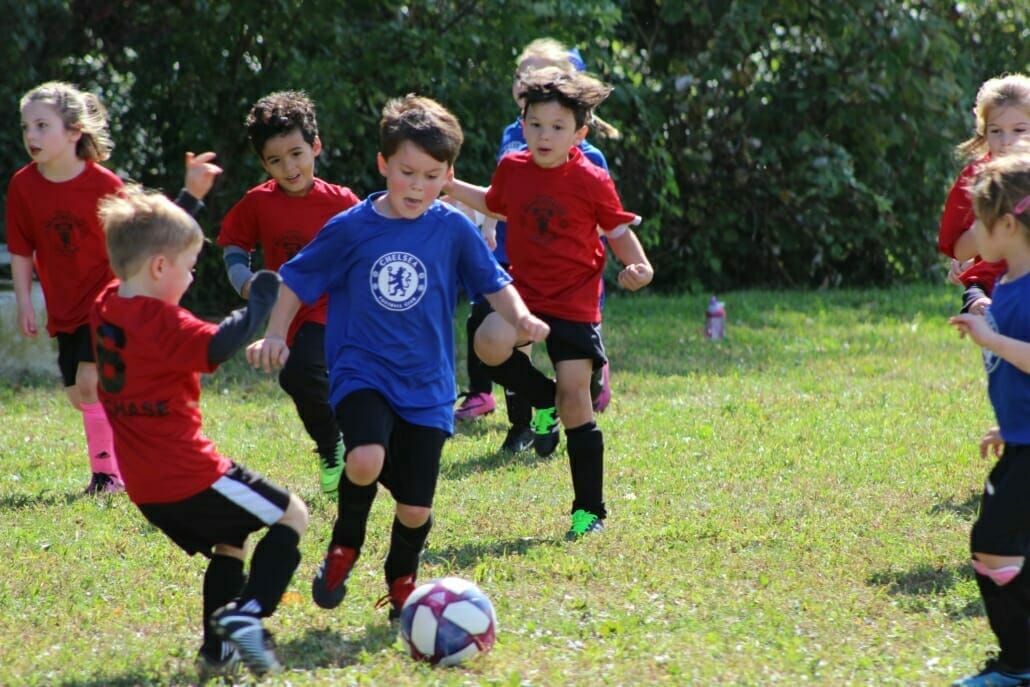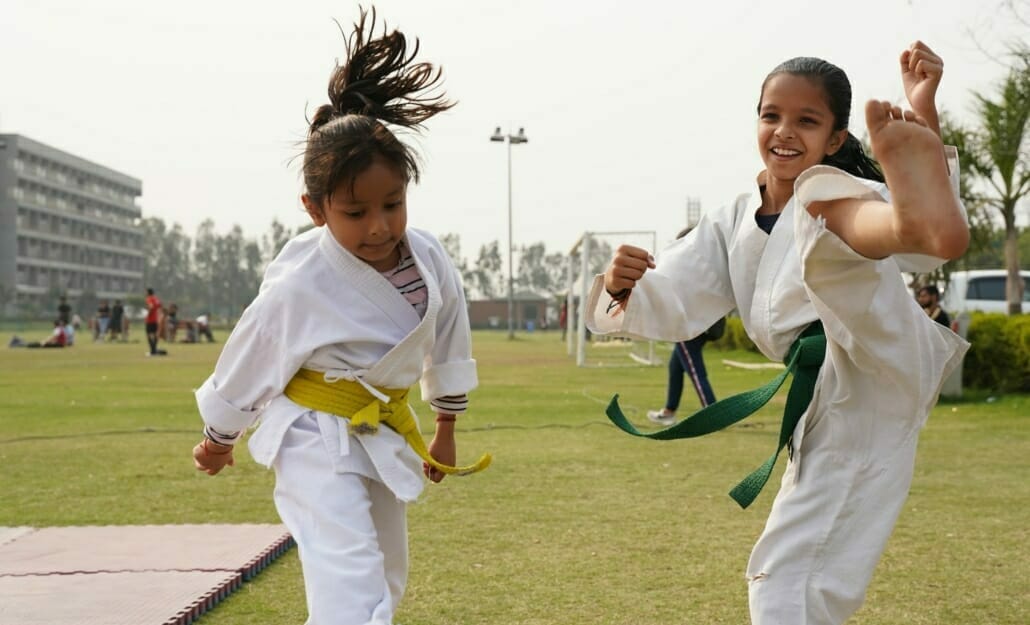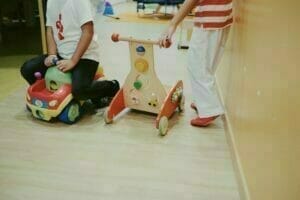Afternoon activities for children in Germany

After the final school bell rings, the day is far from over for many children. Contrary to popular belief, a significant number of kids eagerly seek out afternoon activities to keep them engaged and entertained. In fact, a recent survey reveals that half of all children show a keen interest in participating in after-school programs.
For parents with school-age children, the challenge of finding suitable childcare options becomes apparent during school cancellations and holidays. Moreover, working parents often face the task of filling the gap between the end of the school day and their own work hours. In this article, we delve into various standard after-school childcare options, providing insights and guidance for busy parents seeking the best solutions.
Here you can find out more about “Childcare in Germany“.
1. Afternoon activities offered by the school
Embracing the holistic development of students, many schools now offer a diverse range of afternoon activities and extracurricular clubs. These engaging programs, conducted in group settings, encompass a wide spectrum of interests, from homework supervision, music and theater to art and sports. By participating in these activities, children not only pursue their passions but also receive professional supervision within a familiar environment.
2. After-school care
Another viable option for afternoon care is the after-school program, specifically designed for elementary school children. These dedicated educational facilities often provide a nurturing environment with the provision of lunch and homework supervision. It’s worth noting that some after-school care programs may have limited operating hours, typically closing at 4 p.m.
3. Individual afternoon care
Opting for individual afternoon care, such as hiring a trusted babysitter or nanny, offers a flexible and personalized alternative. A caregiver can pick up your child from school and provide attentive care until you return home in the evening. If you already have an occasional babysitter for evening childcare, they might be well-suited to extend their services to after-school care. The advantage of this arrangement is that your child is familiar with the caregiver, ensuring a sense of continuity and comfort.

4. Youth centers
Youth centers can be an excellent option for your children to spend time after school. Check with your local youth welfare office to find out if the youth center you’re interested in offers professional childcare services and, if possible, meals for the children. These centers provide a safe and stimulating environment for kids to socialize, explore new interests, and engage in supervised activities.
5. Flexible working hours
If you and your partner have the flexibility to adjust your working hours, it can offer a solution to the challenge of afternoon care. Consider taking turns in managing work schedules. For instance, one parent can start work early in the morning while the other takes on the responsibility of dropping off the kids at school. This way, one parent will be available at home in the afternoon when the children finish school.
6. Working remotely for afternoon support
Working from home provides an ideal foundation for afternoon childcare, especially for older children who require less direct attention. Discuss with your HR department the options for remote work and determine the feasibility of working from home. It may be helpful to arrange occasional babysitting or childcare support during important meetings or when focused work is required.
7. Family & friends as jumpers
Many parents choose to rely on their own family, such as grandparents or trusted friends, for childcare. The familiarity and affection between the children and their caregivers make this option appealing. However, it’s important to consider that grandparents and friends also have their own commitments and may not always be available. To ensure consistent care, forming a parenting group can be a wonderful alternative.
8. Building a parent association
Creating a parenting association can be a fantastic solution to secure reliable childcare. Gather a group of like-minded parents or neighbors who are friends and establish a rotating system where each parent takes turns caring for the children. By organizing schedules and setting rules together, you can ensure a supportive and dependable network of care. Consider exploring the option of babysitter sharing with your trusted friends as well.
Quality afternoon care provides your child with a nurturing environment, balanced meals, and opportunities for play and homework. When seeking appropriate care, always take into account your child’s interests, preferences, and individual needs.

Music as an afternoon activity
Introducing children to the world of music at a young age can have numerous benefits. However, the appropriate approach varies depending on their age and developmental stage.
For 2-4-year-old children, participating in an elementary Musikgarten course offers an informal and playful introduction to music. Through rhythmic movement, singing games, and exposure to different musical instruments, children can experience the joy of music without the need for technical instruction or reading sheet music.
As children reach the ages of 5-6, early musical education becomes more focused, delving into the sounds, timbres, and individual instruments. This stage sets the foundation for future instrumental lessons and learning to read music.
From the age of 6, the possibilities expand, and children can explore various instruments such as the piano, guitar, ukulele, keyboard, recorder, and percussion. The Suzuki method can even be used to teach a 4-year-old child to play the violin, although considerations regarding the child’s readiness and physical development should be taken into account.
Certain wind instruments like the saxophone require specific body size and finger length, making them more suitable for older children. For reference:
From 6 years: Piano, guitar, ukulele, keyboard, recorder, percussion (drums, etc.).
From 7/8 years: Clarinet, trumpet.
From 9 years: Saxophone and other wind instruments.
By understanding the age-appropriate options, parents can guide their children towards a musical journey that aligns with their interests and abilities.
Sports in the afternoon: Which sports suit your child?
Nurturing a love for sports and physical activity in your child’s early years can have a lasting impact on their overall well-being. However, the key to success lies in ensuring that sports are enjoyable for them. With countless options available, how can you determine which sport suits your child best, and how can you provide the right encouragement and support?
First and foremost, prioritize fun. Sports should be a source of joy and excitement for children. Consider their interests, preferences, and natural inclinations when exploring different sports options. Let them experiment and discover activities that genuinely capture their enthusiasm.
Additionally, consider the physical demands and safety aspects of the sport. Ensure that it aligns with your child’s age, abilities, and overall well-being. Consult with coaches, instructors, or sports professionals who can provide guidance on age-appropriate training programs and equipment.

Sports promote many essential skills in your child
Engaging your child in sports activities, even from a young age, offers more than just physical benefits. Joining a sports club, such as parent-child gymnastics, not only enhances their physical performance but also nurtures essential social skills. Through group participation, children learn to establish social connections, abide by rules, and interact with peers their own age.
Team sports emphasize the importance of teamwork, fair play, and resilience, teaching children valuable lessons in both winning and losing. Additionally, sports contribute to boosting your child’s self-confidence, particularly in disciplines like judo, karate, horseback riding, and vaulting.
Exploring Sports for Children: A Journey for Parents and Toddlers
Even toddlers can experience great joy in gymnastics when their parents actively participate. Parent-child gymnastics offers an opportunity for children as young as two to develop fundamental movement skills and body awareness. To ensure your child remains engaged, it’s important to choose classes specifically designed for their age group, incorporating elements like singing games and storytelling into the exercises.
Seeking feedback from other parents who have attended similar classes can provide insights into the class structure and dynamics. Parent-child gymnastics programs are typically offered by sports clubs or adult education centers, with an average cost of €30 per year.
By encouraging your child to participate in sports and actively engaging in their early experiences, you are nurturing their physical abilities, social development, and self-assurance. Sports provide a platform for holistic growth and enjoyment, fostering valuable skills that will benefit them throughout their lives.
Sport for children as targeted training for development?
When considering sports for a child who may be a bit clumsy or have certain physical deficits, it’s important to focus on their enjoyment rather than solely targeting skill improvement. While it may be tempting to push them towards a sport that addresses their challenges, remember that your child’s enjoyment of the movement and the sport itself is paramount.
If your child consistently finds themselves at the bottom of the group, it’s crucial to foster a sense of achievement to maintain their interest. For instance, if a pediatrician recommends swimming to improve posture, but your child has a fear of water, exploring gymnastics or other sports may be more suitable. Any form of exercise will have a positive impact, and while some sports may be more targeted for specific skill improvement, the overall goal is to engage your child in a sport they genuinely enjoy.
Avoiding Excessive Ambition in Children’s Sports

Although it’s natural to have preferences for your child’s sports activities, it’s essential to respect their own interests and wishes when making decisions. Avoid comparing your child’s athletic achievements to those of others and instead focus on their individual progress and accomplishments. Excessive ambition can dampen the joy of sports, leading children to lose interest in participating.
While parental support is crucial, it’s important to find a balance and not become overly involved. Avoid assuming the role of a co-trainer and providing tactical instructions before a game, for example. Instead, offer encouragement and motivation when your child may not feel like participating or after a disappointing game, helping them regain confidence in themselves. By fostering a supportive and enjoyable environment, you can enhance your child’s sports experience and their overall well-being.






